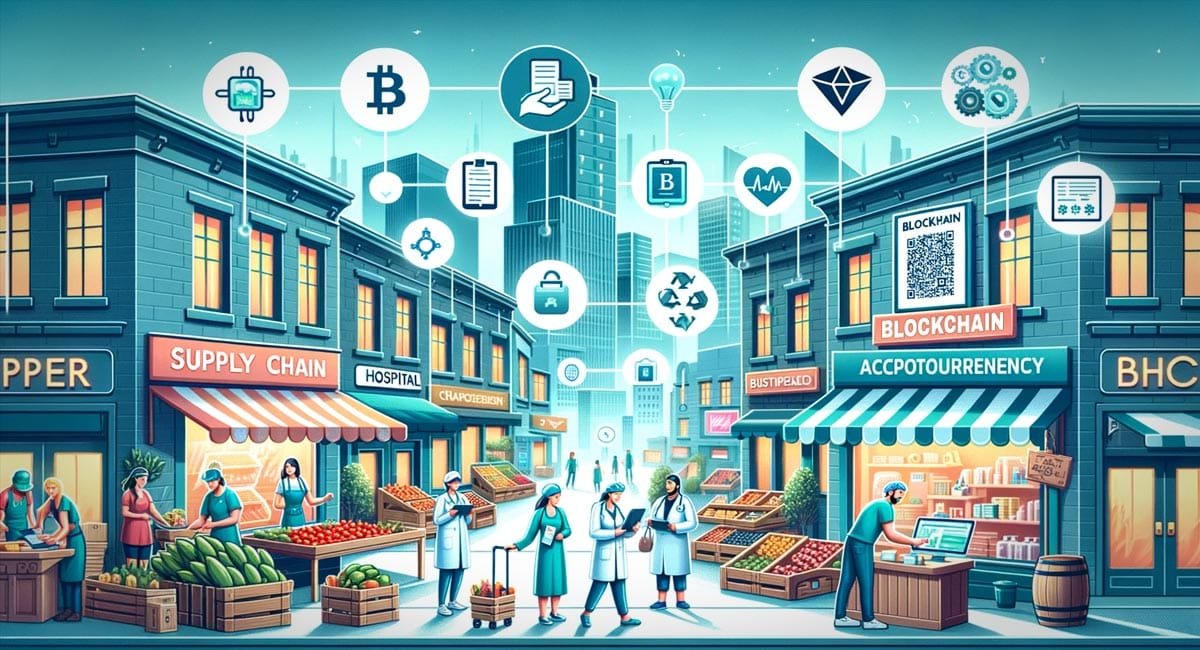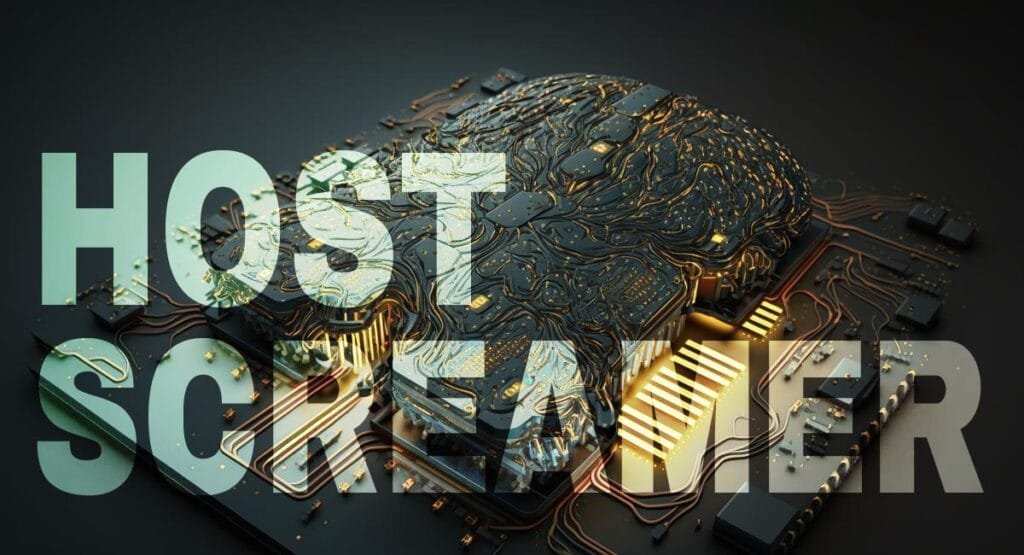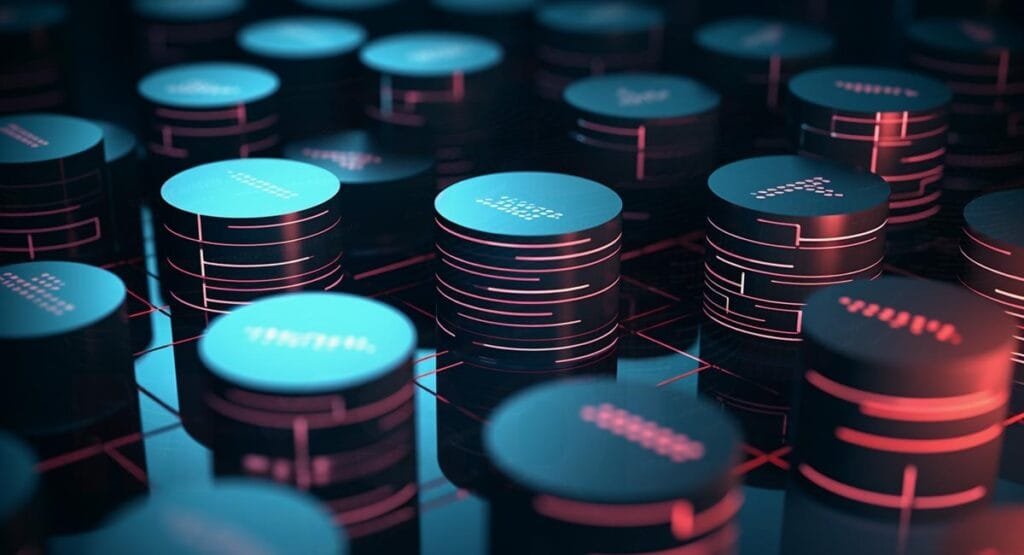Blockchain. It sounds futuristic, doesn’t it? Like something out of a sci-fi movie. But it’s so much more than just a buzzword. It’s a technology that’s already changing the way we think about transactions, trust, and transparency. Think of it as a public ledger on steroids, if you will.
But why should you care? Why should anyone care? Well, aside from the endless articles and news reports about cryptocurrency, this decentralized ledger technology is weaving its way into multiple sectors of the real world. From healthcare to real estate, and from supply chain management to voting systems, blockchain is rapidly proving its worth.
In this article, we’ll take a deep dive into the real-world uses of blockchain. I guarantee you’ll walk away with a newfound appreciation for this technological marvel. And who knows, maybe you’ll even start to see its potential in areas of your own life or business!
Real World Uses for Blockchain
Table of Contents
- Financial Services
- Supply Chain Management
- Healthcare
- Real Estate
- Voting Systems
- Frequently Asked Questions
- Final Thoughts
- Sources
Financial Services
Alright, let’s pull back the curtain a bit more on blockchain in the realm of financial services.
Traditional Banking Revolution
To kick things off, it’s crucial to understand that at its core, the traditional banking system is centralized. What does this mean? Banks and financial institutions act as middlemen, controlling and monitoring transactions. This structure, while proven, often results in delays, extra costs, and sometimes, errors.
Enter blockchain.
With its decentralized nature, blockchain removes the need for intermediaries. This not only speeds up processes but also reduces costs. Ever had to grit your teeth at the exorbitant fees for international transfers? With blockchain, those fees can be significantly reduced.
Identity Verification and Fraud Reduction
“Who are you, really?” It’s a profound question and a practical one for banks. Identity verification and fraud detection are pivotal aspects of the financial sector. Blockchain, with its high security and encrypted records, offers a robust solution.
Every transaction on the blockchain gets a unique ID, making it nearly impossible to alter without alerting the entire network. This level of security drastically reduces the chances of fraudulent activities.
Tokenization of Assets
Have you ever wished you could invest in a small fraction of an expensive artwork or a prime piece of real estate? With blockchain, this dream is becoming a reality. Through the process of tokenization, physical assets can be divided into smaller, digital tokens. These tokens, representing a fraction of the asset, can be bought, sold, or traded. This opens up opportunities for micro-investments and democratizes the investment process.
Peer-to-Peer Lending
Imagine lending money directly to someone in need, without a bank’s involvement. With blockchain’s decentralized platforms, peer-to-peer lending is gaining traction. Not only does this ensure quicker loan approvals and lower interest rates for borrowers, but it also provides better returns for lenders. It’s redefining the very concept of lending and borrowing.
Regulatory Compliance and Auditing
Regulations are a necessary part of the financial world, ensuring stability and fairness. But they can be cumbersome. Blockchain can help streamline regulatory compliance. How? By providing a transparent and unchangeable ledger of transactions. This not only simplifies auditing but also ensures institutions remain compliant with ever-evolving financial regulations.
The Advent of Decentralized Finance (DeFi)
One of the most promising developments in the blockchain-financial nexus is DeFi or Decentralized Finance. It’s an umbrella term for financial services on blockchain, spanning lending, borrowing, and even complex financial instruments like derivatives, all without traditional intermediaries. DeFi platforms promise to make financial systems more inclusive, efficient, and secure.
Supply Chain Management
Let’s journey further into the intricate world of supply chains and discover how blockchain, with its vast potential, is shaping its future.
What is Supply Chain Management?
Before we dive deep, let’s take a moment to understand what Supply Chain Management (SCM) truly encompasses. Imagine a product as a relay baton. From its raw material form to the end consumer’s hands, it gets passed along multiple touchpoints—manufacturing, storage, distribution, and more. SCM is the meticulous process of managing and optimizing this entire baton relay.
Now, why is blockchain a game-changer for SCM? Let’s delve into it.
Transparency and Traceability
Ever thought about where your coffee comes from? Or how ethical the diamond in your ring is? Consumers today aren’t just buying products; they’re buying stories, ethics, and sustainability. Blockchain provides a transparent and tamper-proof record, allowing every item to be traced back to its origin. This traceability builds trust among consumers, ensuring they’re supporting sustainable and ethical practices.
Eliminating Counterfeits
Counterfeit products are a significant concern in various industries, from luxury goods to pharmaceuticals. With blockchain, products can be tagged and tracked, ensuring their authenticity. This is especially crucial for industries like pharmaceuticals, where counterfeit drugs can be life-threatening.
Streamlined Operations
A supply chain is a complex maze of vendors, partners, and processes. Managing these efficiently can be a herculean task. Blockchain provides real-time, secure data sharing, allowing for quicker decisions, reduced bottlenecks, and improved inventory management. This results in cost savings and efficient operations.
Contracts and Agreements: The Smart Way
In the realm of SCM, contracts and agreements form the backbone of vendor and partner relationships. Blockchain introduces smart contracts—these are self-executing contracts with terms directly written into lines of code. They automatically execute actions (like payments) when conditions are met, reducing disputes and increasing efficiency.
Reducing Fraud and Errors
Errors, intentional fraud, or even simple miscommunication can be costly in SCM. With blockchain’s immutable nature, once data is entered, it cannot be altered without consensus. This drastically reduces the chances of fraud and errors, ensuring smoother operations.
Sustainable and Ethical Supply Chains
As the world moves towards more sustainable practices, blockchain offers a way to verify and validate green initiatives in the supply chain. For instance, ensuring raw materials are sourced from eco-friendly sources, or verifying that a product is genuinely organic.
Enhanced Collaboration and Partnership
With a shared, transparent ledger, collaboration between different stakeholders in the supply chain becomes easier. Everyone—right from the raw material provider to the retailer—can be on the same page, leading to improved partnerships and collaboration.
Healthcare
Stepping into the realm of healthcare, where precision, trust, and timeliness are paramount, blockchain is proving to be more than just a technological savior. It’s emerging as a beacon of hope for challenges that have long plagued this sector. Let’s examine how.
The Complex World of Medical Records
Imagine being treated by different doctors in different clinics or hospitals over the years. Your medical records are scattered, and accessing them promptly can sometimes be a matter of life and death.
Enter blockchain.
Blockchain offers a secure, immutable, and easily accessible platform for storing patient data. Every time there’s a new medical entry, it gets added to the blockchain. The result? A comprehensive, tamper-proof medical history that’s accessible anywhere, anytime. And, given the sensitivity of medical data, the encryption and security features of blockchain ensure patient privacy is never compromised.
Drug Traceability and Counterfeit Medication
A pill isn’t just a pill. It’s a culmination of rigorous research, testing, and compliance. But the menace of counterfeit drugs casts a dark shadow over the pharmaceutical world. Blockchain can shine a light here.
From the moment a drug is manufactured to the time it reaches a patient, blockchain can trace its entire journey. This ensures that the medicine is genuine, and patients can be confident in its authenticity. It’s not just about health; it’s about trust.
Clinical Trials and Research
Clinical trials are the bedrock of medical advancements. However, maintaining the integrity of data during these trials is crucial. With blockchain, every piece of data from clinical trials can be securely stored, ensuring its authenticity and preventing any tampering. This enhances trust in research results and speeds up medical advancements.
Consent Management
Medical procedures often require patient consents, and managing these can be a bureaucratic challenge. With blockchain, digital consents can be stored securely, ensuring that there’s always a clear record of what a patient has agreed to.
Telemedicine and Remote Monitoring
As healthcare evolves, telemedicine and remote monitoring of patients are becoming standard. Blockchain ensures the data from remote devices is securely transmitted, stored, and accessed, bridging the gap between patients and healthcare professionals effectively.
Supply Chain for Medical Equipment
Just as with any other product, medical equipment goes through a supply chain. Ensuring the authenticity and quality of these products is paramount. Blockchain provides a transparent system to trace the journey of medical equipment, ensuring hospitals and clinics receive genuine products.
Health Insurance Claims
Processing health insurance claims involves verifications and checks. Blockchain can automate and streamline this process using smart contracts, reducing fraud and ensuring quicker settlements.
Real Estate
Let’s set foot into the expansive world of real estate, a sector teeming with potential, complexity, and value. How does the powerful innovation of blockchain fit into this landscape? Buckle up, because the possibilities are both transformative and far-reaching.
Real Estate: A Brief Overview
The pillars of the real estate market are transactions, trust, and documentation. Buying a property isn’t like picking up a coffee. It’s a significant commitment, rife with paperwork, verifications, and substantial financial implications. What if we could simplify, secure, and speed up this process? That’s where blockchain comes into play.
Transparent Transactions
Anyone who’s been a part of a property deal knows the agonizing wait and uncertainty that often comes with it. With blockchain’s decentralized ledgers, every transaction becomes transparent. Both parties can track the progress in real-time, reducing uncertainties and increasing trust.
Smart Contracts: Making Deals Smarter
Traditional property deals are mired in paperwork. Enter smart contracts. These are self-executing contracts with the terms of the agreement directly written into code. Imagine an agreement where payment is automatically released when specific conditions (like a clear property inspection) are met. No intermediaries, no delays. Just efficient, automated processes.
Fractional Ownership: Redefining Investments
Let’s face it: investing in prime real estate often requires deep pockets. But what if you could own just a part of a property? Blockchain enables fractional ownership, where a property is divided into ‘tokens’ or ‘shares’. Investors can buy these tokens, giving them a stake in the property. This not only democratizes real estate investments but also opens up avenues for diversified portfolios.
Title Records: A Matter of Trust
The history of property ownership, known as the title, is a critical aspect of real estate. Errors in title records can lead to legal nightmares. Blockchain offers a solution by providing a secure, unchangeable record of title histories. Once a property’s details are recorded on the blockchain, they can’t be tampered with, ensuring trust and clarity.
Eliminating Intermediaries
Real estate transactions traditionally involve multiple intermediaries – from brokers to title companies. Each adds a layer of cost and time. Blockchain’s transparent and secure nature can reduce the need for these intermediaries, resulting in quicker transactions and cost savings.
Global Property Market
Interested in buying a quaint cottage in the English countryside or a chic apartment in New York? Cross-border real estate transactions can be daunting, with currency exchanges, international regulations, and more. Blockchain simplifies this by providing a standardized, transparent platform for global property dealings.
Lease Management
For properties on lease, managing rental agreements, payments, and maintenance can be cumbersome. Blockchain streamlines this process. For instance, rental payments can be automated using smart contracts, ensuring timely payments and reducing disputes.
Voting Systems
Imagine stepping into a world where voting, a cornerstone of democracy, is not just transparent, efficient, and inclusive, but also guarded against manipulation or fraud. That’s the potential promise of blockchain when intertwined with voting systems. Let’s embark on this exploration together.
Voting: The Heartbeat of Democracy
At its essence, voting is an expression of voice. Whether it’s a local issue or a monumental national decision, every vote matters. However, conventional voting systems, while foundational, have their challenges—fraud, disenfranchisement, inefficiency, and lack of transparency, to name a few. Can blockchain breathe new life into this age-old system?
Immutable Records: Every Vote Counts
One of the foremost concerns in voting is the alteration or deletion of votes. With blockchain’s immutable ledgers, once a vote is cast, it’s set in stone (or, more aptly, in code). It cannot be changed without a trace, ensuring the sanctity of each vote.
Enhanced Accessibility: Voting from Anywhere
In today’s digital age, physically visiting a polling booth can be a hurdle for many, especially those living abroad or with mobility challenges. Blockchain-based voting systems can facilitate secure online voting platforms, ensuring that everyone can cast their vote, no matter where they are.
Identity Verification: Ensuring Authenticity
“Are you who you say you are?” This question is crucial in voting. Blockchain, with its robust encryption and security mechanisms, can ensure that voters are authenticated effectively, reducing the risk of impersonation or fraudulent votes.
Transparent Yet Private
It’s a delicate balance—ensuring that votes are transparent and verifiable, yet maintaining voter anonymity. Blockchain can achieve this. While all transactions (votes, in this case) are transparent on the network, individual voter identities can remain encrypted and private.
Reducing Costs
Physical voting processes—setting up polling stations, deploying staff, managing paper ballots—can be expensive. A blockchain-based system, once set up, can significantly reduce these costs, making the democratic process more economically efficient.
Quick Tallying and Results
Awaiting election results can be a nail-biting experience. With blockchain’s real-time recording, vote tallying can be near-instantaneous, ensuring quicker results and reducing the agonizing wait.
The Challenges Ahead
While the promise is immense, it’s essential to note that implementing blockchain in voting systems isn’t without its challenges. Concerns about technology adoption, especially among older generations, potential system hacks, regulatory hurdles, and ensuring widespread trust in a new system are genuine. After all, trust is the bedrock of any democratic process.
Frequently Asked Questions
Final Thoughts
Blockchain is no longer just a fancy word thrown around in tech circles. It’s a transformative technology, making waves in various sectors. Its ability to ensure transparency, security, and speed is unparalleled.
If there’s one thing to take away from this article, it’s this: Blockchain is not just about cryptocurrency. Its potential to revolutionize industries is vast, and we’re only just scratching the surface. So the next time you hear “blockchain,” think beyond Bitcoin. Think about the endless possibilities it presents for a more transparent and efficient world.
Sources
I am a huge enthusiast for Computers, AI, SEO-SEM, VFX, and Digital Audio-Graphics-Video. I’m a digital entrepreneur since 1992. Articles include AI assisted research. Always Keep Learning! Notice: All content is published for educational and entertainment purposes only. NOT LIFE, HEALTH, SURVIVAL, FINANCIAL, BUSINESS, LEGAL OR ANY OTHER ADVICE. Learn more about Mark Mayo






